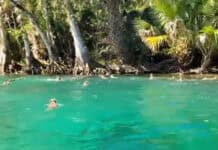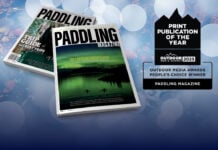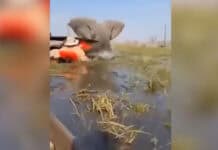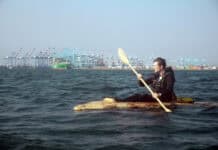Rutabaga paddlesports owner Darren Bush announced that he will close the Madison, Wisconsin, paddling shop at the end of the year to pursue a calling as a hospice chaplain. Bush will continue to own and operate Canoecopia, the largest consumer gathering in the paddlesports business.
“I believe that life teaches you lessons, and when you’ve learned what you need to learn it’s time to move on,” Bush wrote in a substack announcing the change. “I thought I’d work at Rutabaga a few years, get some management experience, then move on. Well, I didn’t stop learning things.”
Bush started selling canoes part-time in 1990 at Rutabaga, when he still had a so-called ‘real job’ as a statistician for the state of Wisconsin. He became a full-time manager in 1994, General Manager in 2000, co-owner in 2002 and sole owner (with his wife Stephanie) in 2007. A rutabaga, by the way, is a root vegetable that resembles a cross between a turnip and cabbage. If you’ve never tasted one you’re not missing much, but until you’ve felt the energy of Rutabaga’s sales floor or the exhibit hall at Canoecopia, you haven’t fully experienced the paddling lifestyle in North America, and especially the Midwest.
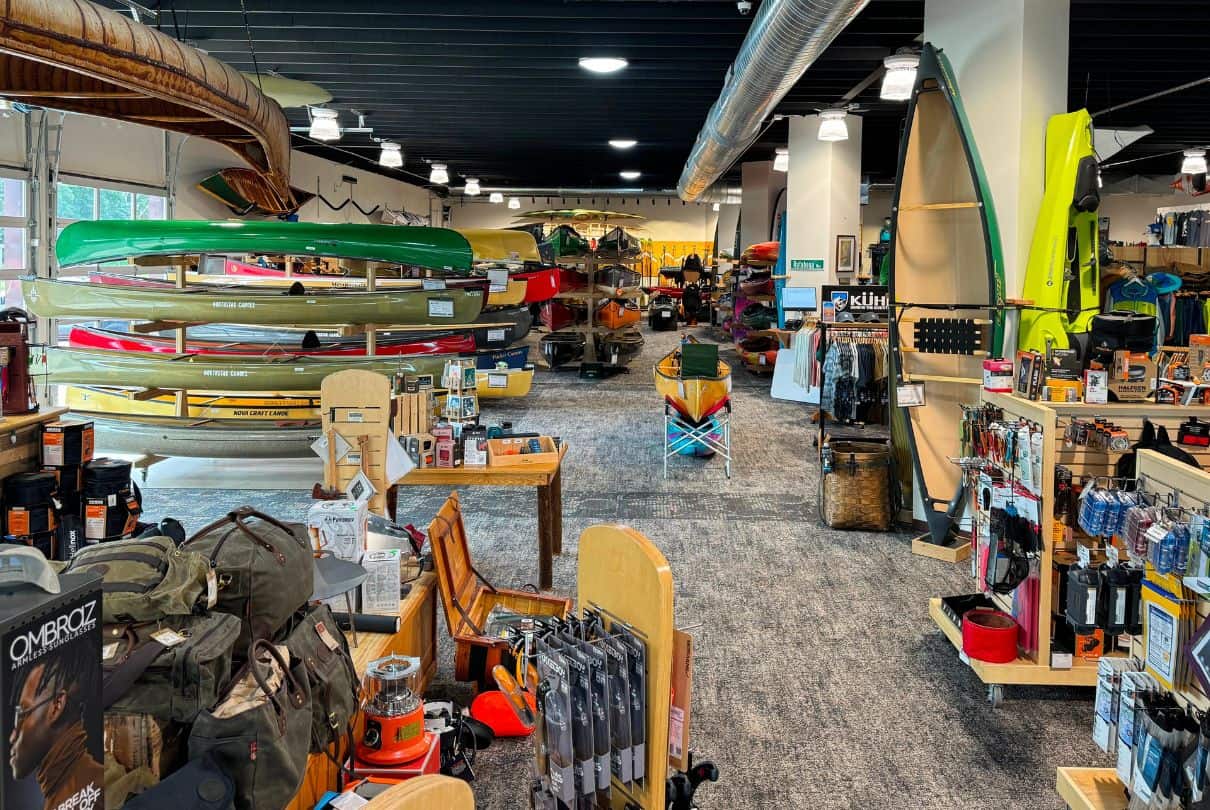
Bush was at the center of that culture, leading with a quiet energy and a heartfelt urgency to share the joy of paddling with others. In addition to his work with Rutabaga and Canoecopia, Bush co-founded the Paddlesports Retailer show and the Big Gear Show. He also owns a thriving rental operation in Madison, which will continue.
Rutabaga Paddlesports Closing at the End of 2025
“The only thing that’s really going away is the retail part of it,” Bush said. “Everything I’m keeping is community-related, not retail-related.” He spoke with Paddling Magazine in advance of his announcement, about the importance of the paddling industry in his life, his calling to the chaplaincy, and the factors that caused him to walk away from his business less than three years after building a new 10,000-square foot retail store.
Here I should disclose that Bush is both a friend and a trusted source. In my own side-gig as editor of Paddling Business, I could always count on him to give me the ground-truth of the paddlesports industry, whether for better or worse. Our conversations often veered away from business to paddling, and what the sport has given each of us. Invariably, he would share an anecdote from the sales floor about a person he’d recently sold a canoe, car rack or paddle—interactions that usually ended with a hug and a selfie photo.
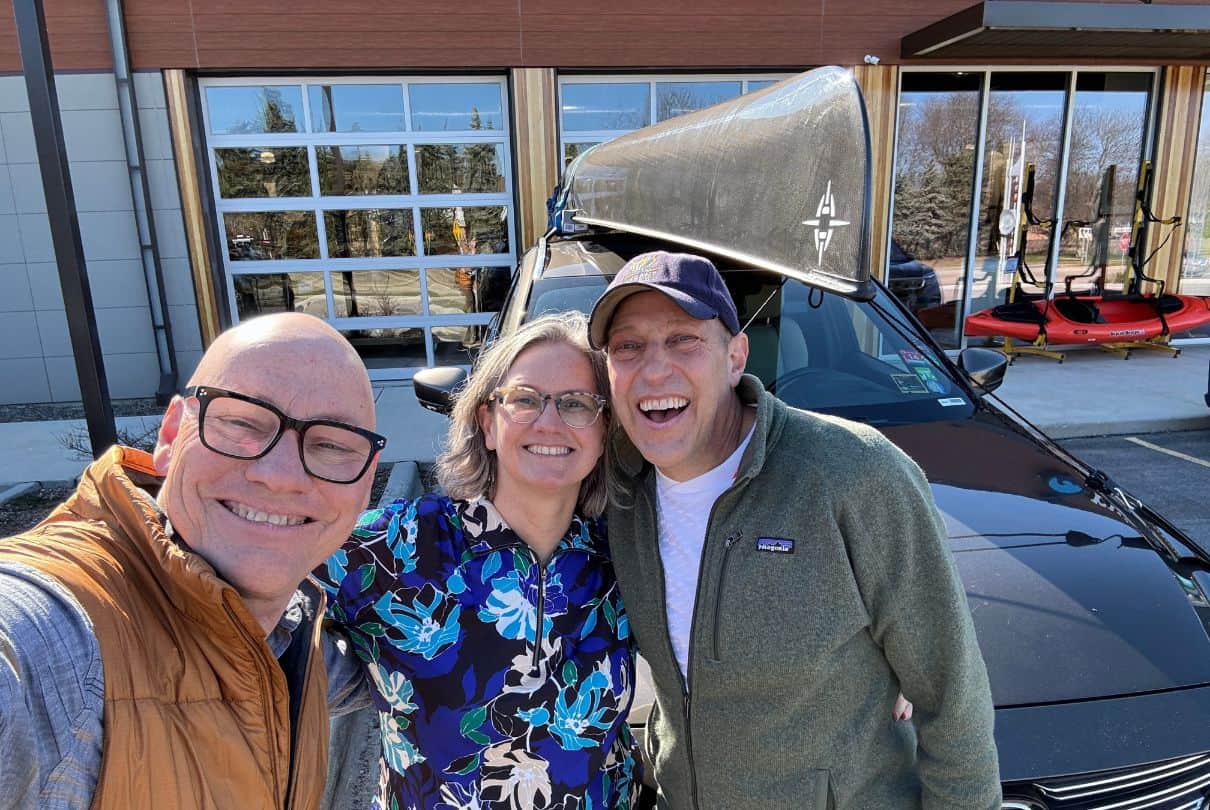
This time he also spoke about holding a person’s hand as they died—something he has done many times as a volunteer chaplain at the University of Wisconsin hospital, and as a bishop in his LDS congregation. Transitioning to chaplaincy work is something he felt called to do.
“Fifty years ago this year I was in eighth grade and the school counselor gave me an aptitude test. I filled it out, and he told me I’m supposed to be a pastor. And now 50 years later, here I am.”
Darren Bush on Choosing Chaplaincy Over Retail
Paddling Magazine: How will you manage the transition?
Darren Bush: I’m not going to close the doors and walk away tomorrow. I’m going to be open to the end of the year. The other thing to know is that Canoecopia is not going away. I can’t do that. It’s too much of a community event. It’s going to change in nature, obviously, and I’m still working through what that’s going to look like. But I can’t mothball Canoecopia, and without the shop I’ll have a lot more time to dig in and do it exactly like I want it. We’re going to keep doing rentals too. In fact we’re expanding them a little bit.
Rutabaga will be open until the end of the year and we’re going to work on getting rid of inventory. We’ll have stuff that’s left over. Some of it I’ll donate. Some of it I’ll put into a storage unit and sell on eBay or whatever.
PM: That’s going to be a lot of eBay selling.
DB: Well, I hope not. It could be that I have a George Bailey moment and all my friends come in and buy everything.
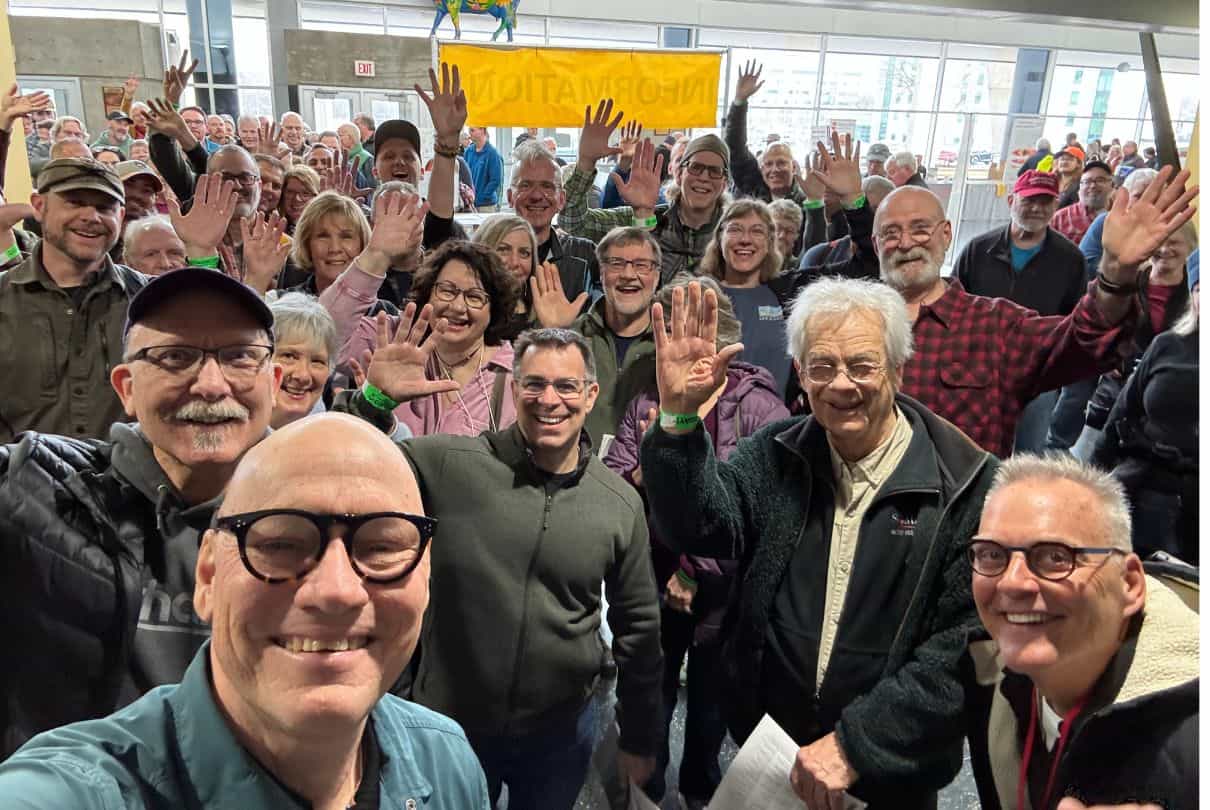
PM: You’re keeping the rental operation and Canoecopia, so you’re not letting go of paddlesports completely.
DB: No, but everything I’m doing is community-related, not retail-related. The only thing that’s really going away in any real sense is the retail part of it.
You know, I sat on the curb today with a woman that I met last week, and she just put her arm around me and said, ‘Thank you for selling me a kayak.’ It’s all about community, and I’ve said that forever. That’s why customers hug me, because I help them be part of the community.
PM: Did you give any thought to selling the whole business to one of your staff or somebody in the industry?
DB: Yes, but as far as staff goes, they don’t have the capital. Millennials, they don’t own anything. That’s I think one of the biggest problems with transitions right now, is who do you get to buy your business unless you get a trust funder.
I wanted to leave on my terms. I’ll sell the shop or lease it. It’s the perfect place for a Harley dealership. Big roll up doors, a garage in the back. And with the solar panels it has negative power bills.
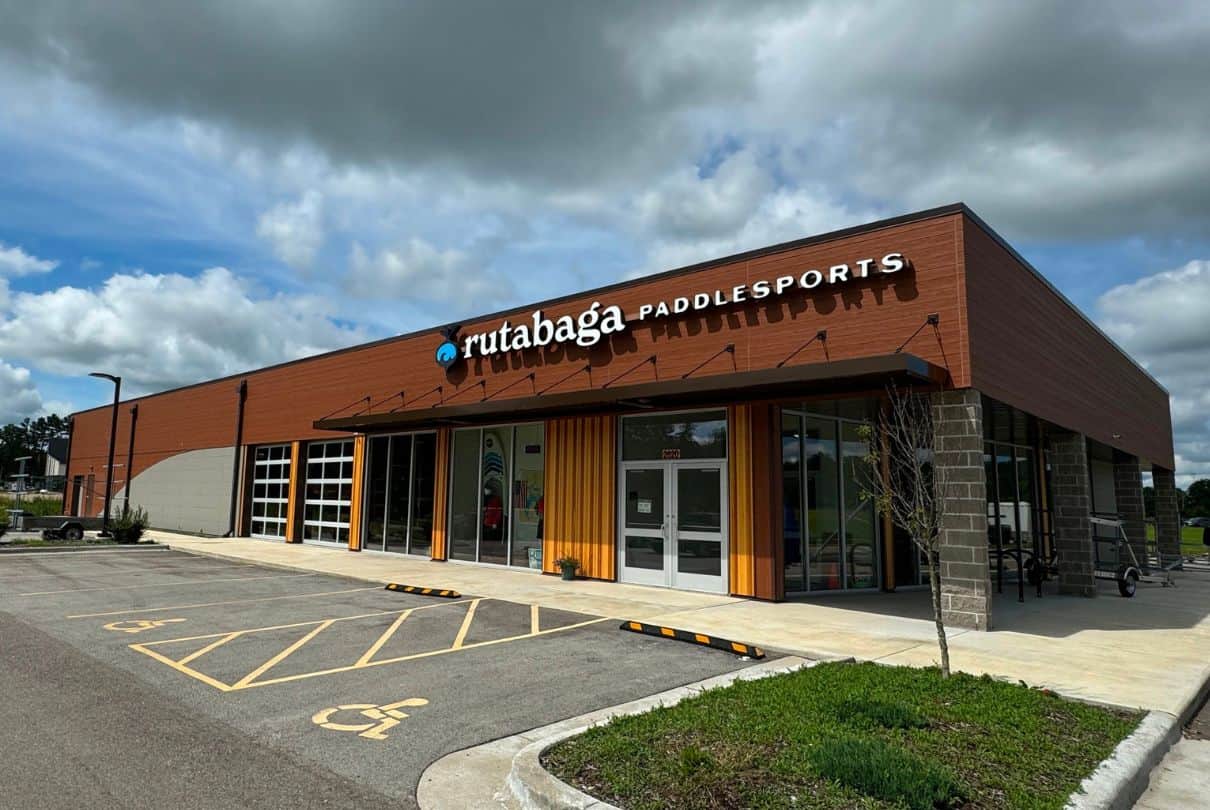
PM: When did you make the decision?
DB: It’s happened over the past two years, because you don’t just say ‘I’m going to sell my business tomorrow.’ It picked up last fall when I started getting some really intense chaplaincy work. Very, very good. Very rewarding—life-changing for both me and the clients. And then a friend said, hey, there’s a CPE [Clinical Pastoral Education] program starting in the winter. You should get in on that.
I made the final decision about eight weeks ago. I was at this cabin up north with my wife and my kids. Steph and I had talked about it, and I said, ‘Okay here’s the deal. I’m closing Rutabaga. We’re going to keep Canoecopia. My son said, ‘I’m so glad.’ And my daughter said, ‘You’re not gonna have another heart attack, Daddy.’ I said, ‘Nope, I’m not.’
PM: One heart attack is enough.
DB: The thing is, I love the work I do. I just don’t like how much of it there is.
PM: You’ve said chaplaincy is rewarding. I imagine it’s also very intense.
DB: The work I’ve done so far has been incredibly rewarding because I’m not afraid to have real conversations with people. The conversations that I’ve had is, number one, how do you want to die? Where do you want to die? And how do you want to be remembered?
Some of the most beautiful moments in my life have been in a canoe and teaching someone how to paddle. And some of the most beautiful times in my life have been holding someone’s hand when they die.
It’s just saying, ‘I’m here. I see you. I feel you. You are loved.’ That’s it. Everything else doesn’t matter. No one should die alone if they don’t want to. It’s a deeply spiritual thing, not necessarily religious. There are so many beautiful things that happen at the end of a person’s life, and you know, there are doulas and midwives who help people come into the world. But there’s not many who help people leave. This is just a transition to my next calling.
Feature photo: Rutabaga Paddlesports will close its doors later this year. | Photo: Darren Bush / Facebook


